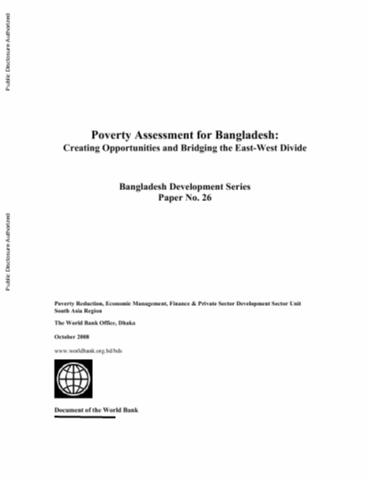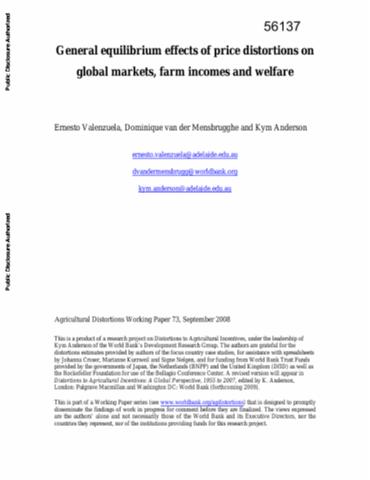The World Bank is a vital source of financial and technical assistance to developing countries around the world. We are not a bank in the ordinary sense but a unique partnership to reduce poverty and support development. The World Bank Group has two ambitious goals: End extreme poverty within a generation and boost shared prosperity.
- To end extreme poverty, the Bank's goal is to decrease the percentage of people living on less than $1.25 a day to no more than 3% by 2030.
- To promote shared prosperity, the goal is to promote income growth of the bottom 40% of the population in each country.
The World Bank Group comprises five institutions managed by their member countries.
The World Bank Group and Land: Working to protect the rights of existing land users and to help secure benefits for smallholder farmers
The World Bank (IBRD and IDA) interacts primarily with governments to increase agricultural productivity, strengthen land tenure policies and improve land governance. More than 90% of the World Bank’s agriculture portfolio focuses on the productivity and access to markets by small holder farmers. Ten percent of our projects focus on the governance of land tenure.
Similarly, investments by the International Finance Corporation (IFC), the World Bank Group’s private sector arm, including those in larger scale enterprises, overwhelmingly support smallholder farmers through improved access to finance, inputs and markets, and as direct suppliers. IFC invests in environmentally and socially sustainable private enterprises in all parts of the value chain (inputs such as irrigation and fertilizers, primary production, processing, transport and storage, traders, and risk management facilities including weather/crop insurance, warehouse financing, etc
For more information, visit the World Bank Group and land and food security (https://www.worldbank.org/en/topic/agriculture/brief/land-and-food-security1
Resources
Displaying 4761 - 4765 of 4906Land Titling and Rural Transition in Vietnam
We examine the impact of the 1993 Land Law of Vietnam, which gave households the power to exchange, transfer, lease, inherit, and mortgage their land-use rights. We use household surveys before and after the law was passed, together with the considerable variation across provinces in the speed of implementation of the reform, to identify the impact of the law. We find that the additional land rights led to statistically significant increases in the share of total area devoted to long-term crops and in labor devoted to nonfarm activities.
No-burn agricultural zones on Honduran hillsides: Better harvests air quality and water availability by way of improved land management
Land in Transition: Reform and Poverty in Rural Vietnam
BACK COVER: This book is a case study of Vietnam’s efforts to fight poverty using market-oriented land reforms. In the 1980s and 1990s, the country undertook major institutional reforms, and an impressive reduction in poverty followed. But what role did the reforms play? Did the efficiency gains from reform come at a cost to equity? Were there both winners and losers? Was rising rural landlessness in the wake of reforms a sign of success or failure?
Poverty Assessment for Bangladesh
Bangladesh has made good progress in reducing poverty over the past decade despite the series of external shocks which have routinely affected the country. Poverty fell from 49 percent in 2000 to 40 percent in 2005, propelled by respectable economic growth and relatively stable inequality. These statistics are reflected in tangible improvements in poor people's lives, such as a sharp reduction in those living under flimsy straw roofs in rural areas.
General Equilibrium Effects of Price Distortions on Global Markets, Farm Incomes and Welfare
Earnings from farming in many developing countries have been depressed by a pro-urban bias in own-country policies as well as by governments of richer countries favoring their farmers with import barriers and subsidies. Both sets of policies, which reduce national and global economic welfare and contribute to global inequality and poverty, have been undergoing reform since the 1980s.










